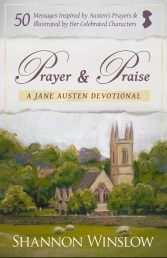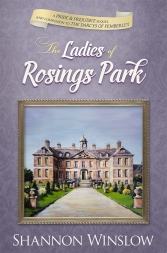“My idea of good company, Mr. Elliot, is the company of clever, well-informed people, who have a great deal of conversation; that is what I call good company.” “You are mistaken … that is not good company; that is the best. Good company requires only birth, education and manners, and with regard to education is not very nice.” Persuasion, chapter 16
This conversation takes place between Anne Elliot and her cousin Mr. Elliot as a result of Anne’s disgust over the extreme deference shown to Lady Dalrymple (a viscountess) and her daughter. We are told that the women in question possess no superiority of manner, accomplishment, or understanding deserving special attention, and that their presence would be barely tolerated (let alone their favor curried) but for their rank.
In theory at least, most of us would probably agree with Anne that a person’s value should be based on something more substantial than an accident of birth. In the US, we may pride ourselves on our supposedly “class-free” society, feel superior for our democratic constitution which states that “all men are created equal” (even though, when those words were penned, “all” didn’t include women or minority races). And, of course, the system of government in the UK has evolved in the past two hundred years as well. Power is no longer exclusively in the purview of white, male land-owners.
Yet, have you noticed that if we don’t have a system of aristocracy already in place, we tend to create one? We elevate people to celebrity status (movie, TV, music, and sports stars, along with other rich and famous), we pay them outrageous sums of money, and then treat them with the same special deference Lady Dalrymple enjoyed. Celebrity watching (our American version of royal watching) has achieved cult status. If you don’t believe me, check “the news” on your Internet home page. I bet you’ll find it’s at least two-thirds gossip about what star is dating what other star, who’s showing off her bikini bod or baby bump, and how some mighty person has fallen from grace.
I’m reminded of a line in the prologue to my novel The Darcys of Pemberley. Considering that the Bennets, as the most prominent family in the area, were celebrities of sorts, it fits: Developments in the Bennet family and amongst their connections always provide a fertile source of conversation for those in the neighborhood whose own lives hold little excitement and few distinctions to celebrate.
We say we believe in equality, but we don’t always behave that way. I guess that means we’re a bit hypocritical, Jane Austen (my favorite celebrity) included. Her stories rail against the unfair plight of her heroines – usually well-bred young women discriminated against for their lack of fortune – as if rank and financial status shouldn’t matter. Yet she sheds no tears for the servants who make the gentry’s lifestyle possible, and sees to it that most of her heroines marry rich men! Not a criticism; just an observation. In truth, I don’t want to read (or write) stories about true poverty and misery. There’s plenty of that in real life. I’ll admit it; I, like Jane Austen, prefer the a fairy tale ending.













